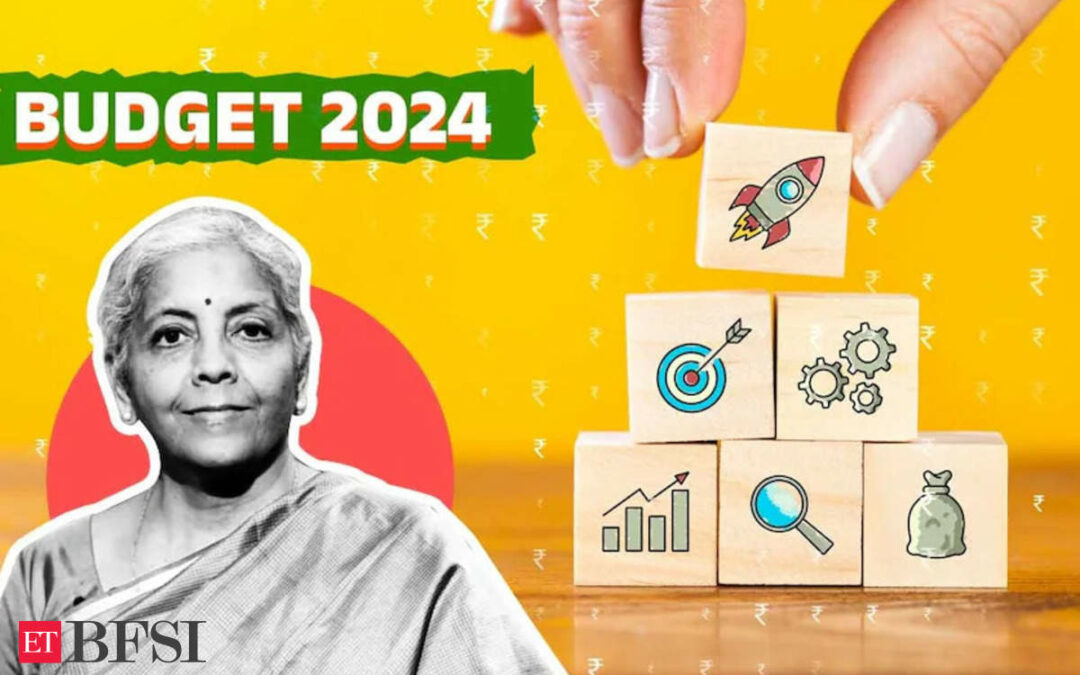Micro, Small, and Medium Enterprises (MSMEs) are the bedrock of the Indian economy, contributing significantly to employment, innovation, and GDP. MSMEs are instrumental in driving inclusive growth and fostering entrepreneurship across urban and rural areas, accounting for nearly 30% of the GDP and providing employment to over 110 million people.
They are a crucial bridge between the informal and formal economy, enhancing economic diversification and resilience.
The importance of MSMEs cannot be overstated. They are vital for the country’s economic development due to their contribution to job creation and regional development. MSMEs are the engines of economic growth and play a pivotal role in the equitable distribution of wealth. They promote the industrialisation of rural and backward areas, reducing regional imbalances and ensuring fairer income distribution.
Given the critical role of MSMEs, the recent budget has laid out a comprehensive plan to support and enhance their growth and competitiveness. The budget has introduced several initiatives on financing, regulatory changes, and technological support.
Budgetary Support for MSMEs
The budget has introduced several measures to support MSMEs. One of the key initiatives is the Credit Guarantee Scheme, which facilitates term loans for MSMEs to purchase machinery and equipment without the need for collateral or third-party guarantees.
This scheme operates on the pooling of credit risks and provides a guarantee cover of up to ₹100 crore, significantly enhancing MSMEs’ ability to invest in their growth.
Another major initiative is the new assessment model for MSME credit. Public sector banks will develop in-house capabilities to assess MSMEs for credit, moving away from external assessments. This new model will utilize the digital footprints of MSMEs, providing a more accurate and inclusive evaluation of their creditworthiness.
This shift from a traditional asset or turnover-based assessment to a digital footprint-based model is expected to cover MSMEs without a formal accounting system, broadening the credit access for smaller enterprises.
The budget also introduced a mechanism to ensure the continuation of bank credit to MSMEs during their stress periods. This mechanism is designed to prevent MSMEs from slipping into the Non-Performing Asset (NPA) category by providing them with the necessary credit to continue their operations. The support is backed by a government-promoted guarantee fund, ensuring that MSMEs can access credit even during challenging times.
The limit for Mudra loans has been doubled to ₹20 lakh for entrepreneurs who have successfully repaid previous loans. This increase provides more substantial financial backing to MSMEs, enabling them to expand their operations and scale their businesses.
To facilitate MSMEs’ unlocking of working capital, the budget has expanded the mandatory onboarding on the TReDS platform. The turnover threshold for mandatory onboarding has been reduced, bringing more companies onto the platform and helping MSMEs convert their trade receivables into cash.
The Small Industries Development Bank of India (SIDBI) will open new branches to serve major MSME clusters, ensuring that more MSMEs can access direct credit and financial services. With opening 24 new branches this year, SIDBI aims to expand its service coverage to 168 out of 242 major MSME clusters.
The budget also supports setting up multi-product food irradiation units and quality and safety testing labs. These initiatives are designed to enhance the quality and safety of MSME products, making them more competitive in the market.
Finally, the budget has proposed the establishment of E-Commerce Export Hubs in a public-private partnership mode. These hubs will help MSMEs and traditional artisans sell their products in international markets, supported by a seamless regulatory and logistic framework.
RBI’s Support for MSMEs
The Reserve Bank of India (RBI) has been instrumental in providing support to MSMEs through various regulatory measures. These include the Priority Sector Lending guidelines, which mandate banks to allocate a certain percentage of their total lending to MSMEs, ensuring necessary credit access.
The RBI has also allowed for restructuring MSME loans without downgrading them to Non-Performing Assets (NPAs), providing relief to those facing temporary financial difficulties. Additionally, the Interest Subvention Scheme offers an interest subsidy on loans, reducing borrowing costs for MSMEs. The RBI supports the Credit Guarantee Fund Trust for Micro and Small Enterprises (CGTMSE) scheme, encouraging lenders to extend credit without collateral.
The Trade Receivables Discounting System (TReDS) platform promoted by the RBI facilitates efficient financing of trade receivables. Moreover, the MSME Samadhaan Portal helps ensure timely payments to MSMEs, improving their cash flow and operational stability.
Regulatory Actions and Their Impact
While the budgetary and RBI’s continued support for MSMEs is commendable, regulators need to be cautious about the inadvertent impact of their actions against regulated entities. Industry sources indicate that 70-80% of gold loan customers are MSMEs, who prefer gold loans for several reasons.
Gold loans are quick and flexible, making them ideal for shopkeepers needing temporary working capital during peak seasons or managing temporary cash crunches. Most gold loan interest is calculated based on the number of days the loan is taken, which is often cheaper for their credit profile at 16-18%. Typical loan sizes are less than a lakh rupees, whereas unsecured loans from fintech companies, if at all accessible, would come at an exorbitant interest rate of 36-48%.
Sudden disruptions in access to gold loans can be devastating for micro and nano enterprises, which are particularly fragile. Transferring loans incurs additional costs and logistical challenges, forcing businesses to borrow temporarily at high fees to repay a loan while waiting for another to be processed.
A case in point is a recent ban on a large retail NBFC from disbursing gold loans for certain violations found in the supervisory inspection and audit. A company like IIFL Finance, which serves 8 million customers—primarily self-employed individuals—and operates over 4,500 branches in remote and small areas, drives financial inclusion by bringing new-to-credit customers into the formal finance fold.
Customers choose the best alternatives in terms of terms, tenor, cost, and service. Therefore, such a large number of customers are compelled to look for new sources of credit, which typically takes time and effort and incurs additional costs.
Regulatory bodies must carefully consider the impact of their actions on MSMEs. While addressing violations is necessary, the approach should not inadvertently harm the sector it aims to promote.
A few days ago, in a State Level Bankers’ Committee (SLBC), RBI’s Deputy Governor admitted, ‘We still have a long way to go to meet the credit needs of the micro, small and medium enterprises (MSMEs). Therefore, alternatives like fines and warnings for issues that can be rectified, rather than outright bans, could be more effective in maintaining compliance without disrupting MSME access to finance.
Also, a more phased and calibrated disciplinary action would mitigate the damage to micro MSME customers instead of a sudden and abrupt ban on business.
A Balanced Approach
In conclusion, while the budget’s thrust on MSME support is laudable, there is a pressing need for a balanced regulatory approach that safeguards MSME interests without compromising on compliance. We can ensure sustainable economic growth and resilience by fostering an environment where MSMEs can thrive through supportive policies and fair regulation.
MSMEs are the lifeblood of the Indian economy. Their growth and prosperity are essential for the country’s overall economic development.
The budget’s focus on MSMEs together with a balanced regulatory approach, will help create a conducive environment for these enterprises to flourish. This, in turn, will lead to job creation, innovation, and equitable economic growth, ensuring a brighter future for the nation.
(The author is Former Secretary, Government of India; Views are personal)











